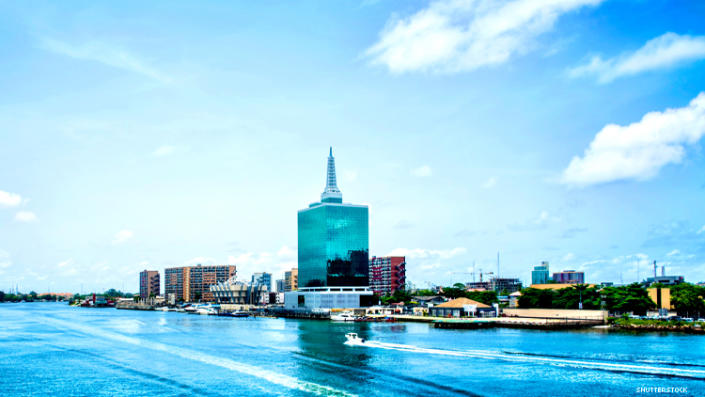Lagos, Nigeria
Lagos Fashion Week is an annual event that seeks to “lead the way with initiatives that support, strengthen and develop the fashion industry” in Nigeria, and Lagos Fashion Week is globally attended.
In a country that nationally punishes gays with imprisonment, in its northern counties with death by stoning, and as recently as 2019, his spokesman for the Lagos State Police Command warned: “Anyone who has a homosexual orientation must leave Nigeria or risk prosecution” in an Instagram post, it is easy to assume that the gender binary is heavily integrated into Nigerian fashion design.
But fashion is as much a conversation as it is a conversation starter, and there are designers who are fueling that discussion by imagining and creating androgynous looks, presenting their work for display at an event that also featured, for the first time, a Nigerian. trans woman, Fola Francis, walking for two (other) designers, Cute Saint and Fruché.
Guy
Based in Lagos, Bloke was founded by Faith Oluwajimi. With a collection called “A Polaroid Called Camouflage,” these knitted silhouettes, some inscribed with the brand’s name, were inspired by Oluwajimi’s travels, where he “…visited between six and seven countries, and the color palette translated for the collection it was some of the flags of these countries that I visited,” he told Attitude.
oshobor
Peter ‘Dawn’ Oshobor founded this androgynous label, introducing a three-piece collection called “Na Man You Be”, a colloquial way of saying “You are a man”, reflecting the impact of fathers on their children’s lives. . “Fathers are the role models of masculinity for their sons. Their relationship, especially within traditional Africa, while strong, often lacks expression and emotion,” Dawn said. “My inspiration revolves not just around masculinity, but masculinity in the African context. Therefore, I focus on fashion items with an African touch, to emphasize the Afrocentrism of the art and its inspiration.”
the story continues
Lagos Space Program
Referring to his collections as “projects,” Thompson Adeju is a non-binary designer who has deliberately made sure to bring his authentic self, from sexuality to African heritage, to his label, and his Project 7 was inspired by Yoruba culture. “The inspiration behind the Project 7 collection is to highlight the similarities between Western tailoring codes and the romance of traditional indigenous dress aesthetics,” they say, “[and] as well as exploring queer semiotics, the collection is also a study in tailoring. Using archival studio photographs from the early 20th century, we attempt to keep alive the clothing techniques long practiced by the Yoruba people.”
Kenya
Founded by Akoth Otieno, the unisex brand uses colorful crochet and knit fabrics in its collections. Based in Nairobi, his Mwanzo collection “…see where our past, present and future collide in motion. Mwanzo seeks to lay the foundations of the house that we intend to build. For this we focus on innovation rather than novelty, but also on updating the knowledge that we have learned in recent years,” he told Attitude. “The silhouettes are unapologetically intentional, and half of it is because we’ve grown in recent years, where we now embrace our power.”
That power is no small thing. “There is representation of all kinds of bodies, and it’s important to see us on the catwalk,” said Fola Francis, speaking to the BBC about a Nigerian law that aims to ban “cross-dressing.” The hope is that this opens the door for queer and non-binary people to walk in shows, in the future.”
Source: news.google.com
